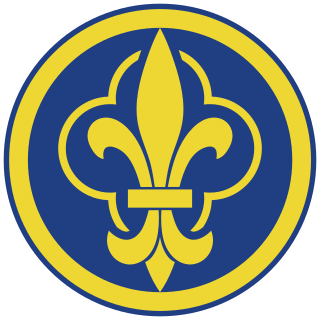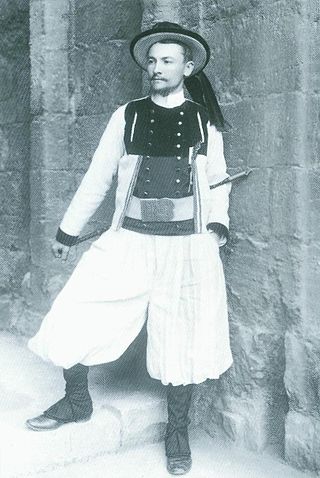This article needs additional citations for verification .(February 2024) |

Le Journal (The Journal) was a Paris daily newspaper published from 1892 to 1944 in a small, four-page format.
This article needs additional citations for verification .(February 2024) |

Le Journal (The Journal) was a Paris daily newspaper published from 1892 to 1944 in a small, four-page format.
It was founded and edited by Fernand Arthur Pierre Xau until 1899. It was bought and managed by the family of Henri Letellier in 1899 and became "the most Parisian, the most literary, and the most boulevardier of the newspapers of Paris" (Simon Arbellot, see Curnonsky).
During World War I, Le Journal was at the center of an intrigue involving Paul Bolo, the essence of which was that the German government was alleged to be attempting to gain influence in France and promote pacifist propaganda by buying French newspapers.
It is understood that during part of its existence it was located at 100 Rue Richelieu Paris. Source – Contemporary Medallion ( undated ).
During the Spanish Civil War, the newspaper supported the Nationalist side, including printing articles denying Nationalist responsibility for the Bombing of Guernica. At the time the newspaper was the second largest morning newspaper in Paris, with a circulation of 400,000. [1]
After the fall of Paris on 14 June 1940, it fell back to Limoges, then Marseille, then Limoges again, and finally Lyon.
It had various supplements: Le Journal pour tous, 1891–1906; La Mode du Journal, 1896–1898; La Vraie mode, 1898–1913; Le Journal (Édition du littoral), 1907–1911.

The Dreyfus affair was a political scandal that divided the Third French Republic from 1894 until its resolution in 1906. The scandal began in December 1894 when Captain Alfred Dreyfus, a 35-year-old Alsatian French artillery officer of Jewish descent, was wrongfully convicted of treason for communicating French military secrets to the German Embassy in Paris. He was sentenced to life imprisonment and sent overseas to the penal colony on Devil's Island in French Guiana, where he spent the following five years imprisoned in very harsh conditions.

Haute-Vienne is a département in the Nouvelle-Aquitaine region in southwest-central France. Named after the Vienne River, it is one of the twelve départements that together constitute Nouvelle-Aquitaine. The prefecture and largest city in the department is Limoges, the other towns in the department each having fewer than twenty thousand inhabitants. Haute-Vienne had a population of 372,359 in 2019.

Action Française was a French far-right monarchist and nationalist political movement. The name was also given to a journal associated with the movement, L'Action Française, sold by its own youth organization, the Camelots du Roi.

Édouard Adolphe Drumont was a French journalist, author and politician, most often remembered for his antisemitic ideology and animus. He initiated the Antisemitic League of France in 1889, and was the founder and editor of the newspaper La Libre Parole. After spending years of research, he synthesised three major types of antisemitism. The first type was traditional Catholic attitudes toward the alien "Christ killers" augmented by vehement antipathy toward the French Revolution. The second type was hostility toward capitalism. The third type was so-called scientific racism, based on the argument that races have fixed characteristics, and asserting that Jews have negative characteristics. His work played a key role in catalyzing the Dreyfus Affair.

Paul Déroulède was a French author and politician, one of the founders of the nationalist League of Patriots.

The National Front for an Independent France, better known simply as National Front was a World War II French Resistance movement created to unite all of the resistance organizations together to fight the Nazi occupation forces and Vichy France under Marshall Pétain.

Maurice Pujo was a French journalist and co-founder of the nationalist and monarchist Action Française movement. He became the leader of the Camelots du Roi, the youth organization of the Action Française which took part in many right-wing demonstrations in the years before World War II (1939–45). After World War II he was imprisoned for collaborationist activity.

Roger Holeindre was a French Army veteran, politician and author. He served in the First Indochina War and the Algerian War, was a member of the National Assembly from 1986 to 1988. Holeindre also served as the vice-president of the National Front (FN) where he represented the "national-conservative" tendency, opposed to "nationalist revolutionaries" and Third Position ideologies. Holeindre was the president of the Cercle national des combattants and the honorary president of the Party of France.

François-Joseph-Claude Jaffrennou was a Breton language writer and editor. He was a Breton nationalist and a neo-druid bard. He is also known as François Taldir-Jaffrennou, since he also used the bardic name Taldir. He was one of the pioneers of the Breton autonomist movement.
The Tour de France was not held because of World War II because the organisers refused German requests. Although a 1940 Tour de France had been announced earlier, the outbreak of the war made it impossible for it to be held. After that, some attempts were made by the Germans during the war to have a Tour de France to maintain the sense of normality, but l'Auto, the organising newspaper, refused. Some other races were run as a replacement.

Émile Pouget was a French journalist, anarchist pamphleteer and trade unionist, known for his pivotal role in the development of revolutionary syndicalism in France. His iconic newspaper, Le Père Peinard, stood out from previous anarchist publications with its inventive use of vernacular and urban slang. Notably, Pouget introduced the term "sabotage" as a tactical approach, a concept later adopted by the General Confederation of Labour (CGT) at its Toulouse Congress in 1897. Pouget's combination of anarchist political theory and revolutionary syndicalist tactics has led several authors to identify him as an early anarcho-syndicalist.

Gaston Peltier was a French footballer who played as a Forward and who competed in the football tournament at the 1900 Olympic Games in Paris, winning a silver medal as a member of the USFSA Olympic team representing France, which was primarily made up of Club Français players.

La Libre Parole or La Libre Parole illustrée was a French antisemitic political newspaper founded in 1892 by journalist and polemicist Édouard Drumont.

Newspapers have played a major role in French politics, economy and society since the 17th century.

Marie-Anne de Bovet was a French writer. From 1893 to 1930, she published 35 novels, in addition to other works. Her last work was written in 1935 when she was 80 years old.

Gabriel Syveton was a French historian and politician. He was one of the founding members of the patriotic and anti-Dreyfus Ligue de la patrie française. He was elected as deputy for the Seine in 1902. He exposed the existence of a card file compiled from Freemason reports on public officials. It listed practicing Catholics, who should be passed over for promotion. He was found dead the day before being required to appear in court after slapping the Minister of War in the Chamber of Deputies.
L'Antijuif was a French weekly newspaper and official organ of the Grand Occident de France, edited by anti-Dreyfusard Jules Guérin. Published in Paris from 1898 to 1899, over 40,000 copies were regularly printed, over half of which was distributed as free propaganda.

The clandestine press of the French Resistance was collectively responsible for printing flyers, broadsheets, newspapers, and even books in secret in France during the German occupation of France in the Second World War. The secret press was used to disseminate the ideas of the French Resistance in cooperation with the Free French, and played an important role in the liberation of France and in the history of French journalism, particularly during the 1944 Freedom of the Press Ordinances.

Renée Marie Gouraud d'Ablancourt, née Marie Renée Joséphine Meslet, was a French writer of romance novels, historical fiction and science fiction.

The Union nationale was a political movement in late 19th-century France characterized by its Catholic, nationalist, anti-Masonic, and antisemitic ideologies.